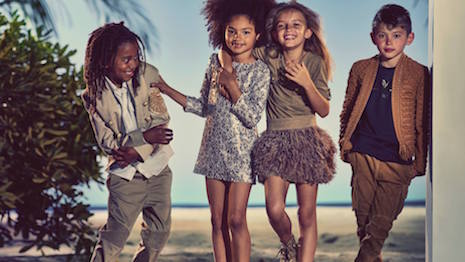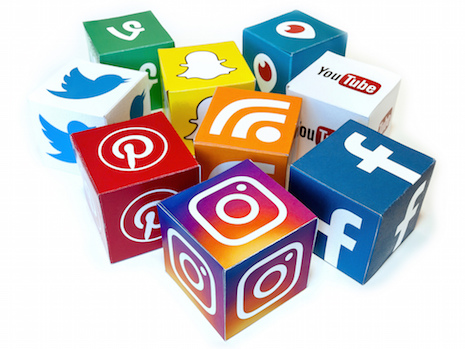Contrary to some speculation on young people getting burnt out on constant advertising, new research shows that Gen Z is happy to engage with branded content so long as it is entertaining and transparent.
This data comes from Fullscreen, which recently dug into the media consumption habits of young consumers to gauge how brands can reach them with engaging content. What they found was that young consumers will engage with branded content if it touches on their passions and does not seek to mislead or misrepresent.
"Gen Z, the first generation born into a post-Google and social media world, is not only the most diverse generation yet, but also the generation with the greatest global perspective," said Pete Stein, general manager, Fullscreen.
"Their continued inclination towards social content on their mobile phones -- first seen in millennials -- is changing the way that content is consumed, shared and even the way it's created," he said. "Growing up in a completely digital world, they expect to be able to have direct access to friends, celebrities and brands."
Targeting Gen Z
Among young consumers, there are two prominent groups: millennials and Gen Z. Fullscreen’s research defined millennials as 18-34 and Gen Z as 13-17.
While millennials are highly comfortable with social media and are susceptible to targeting on it, Gen Z is the first generation to really grow up in a fully socially connected world.
Those consumers are not just comfortable navigating the digital and social worlds, they are their native habitats.
With that in mind, Gen Z consumes their media much more often on newer platforms such as short-form video and social media, while millennials still mostly prefer traditional formats such as television.

Balmain Kids, spring/summer 2017
Influencers also play a big role in both groups' media consumption. Both millennials and Gen Z follow influencers on a variety of platforms at a rate of more than 50 percent.
This presents a huge opportunity for luxury brands to work with influencers to target media-consuming young people.
For Gen Z, video is the dominant media form. Gen Z consumes video almost six times as much as they consume traditional blogs and written content.
Brands that want to target Gen Z need to invest in visually appealing, digestible content to capture their fleeting attention spans.
Transparent digital marketing
Understanding the movements of Gen Z will be of the utmost importance to luxury brands in the near future as the generation is set to be a massive purchasing power.
Born between 1998 and 2016, Gen Z is the largest consumer group in history, totaling 2.5 billion individuals worldwide. As these consumers come of age, marketers will need to take note of this generation’s values and behaviors that are poised to disrupt some of the core tenets of luxury (see story).
Getting a strong brand message across digital channels will be key to capturing Gen Z as they become a more influential bloc of consumers.

Social media plays a huge part in targeting Gen Z
The “How To Build Your Brand With Generation Z” report from Forrester found that consumers ages 18-23 are more likely to trust brand communications on digital channels and are often influenced by a brand's image. The oldest members of Gen Z are entering the workforce and are trying new brands from which they have not previously purchased (see story).
If luxury brands want to be able to get through to Gen Z, they will have to be able to communicate comfortably over digital channels as well as give Gen Z the kinds of transparent, accessible content that they desire.
"In an era of increased media fragmentation, brands are finding that the best way to market their products is to create entertainment that consumers actively seek out," said Maude Standish, vice president of programming strategy at Fullscreen. "This is particularly true when marketing to Gen Z, who grew up with the internet and are not only demanding that all brands entertain them, but also that entertainment shifts to behave like a friend – it's also why influencers are so effective in selling to this generation."
{"ct":"0JehCIe1e1rJ1AghzwAQRCC7smJLFDWX6K7JeoHH7vFv7x2INzGsPbptAXLbG8LS83sqCOow\/AH4J0TDEVHBLq+f4Asel2kjm7pbvQICFOabB+ZxtYQkLeGEia0URobDqQXcapi9SzYWkFJbynUc55gqrsXuDIBSIglSB0YQDfq68USlIpVuhEYf\/WLOQOwUNA4pVPX4\/emg4pyyoUgXPKZ4hr8gDjargSRiswJ+JpdiarkBI12ZsWjnB78cwo1hcev\/RvkJlkncbmlkhui8MzomXY0vwGoqdqJGfqVhcigCzOnXDqTIcImLnsmCLDhpnlT9Q13lna\/I\/RwDN8Dei0WuAl6tYnlIIfcEplKFOXOXgW9VUNl7UyqTqgY8xYjivKgBFobqp3I27Tc0dVFFSxHqr0apq3XHWrvr8wSNpOWLLL3Ug+fo8RQLPIBevnaYMp30+TYCX8qd1RfW\/FDhxlLq8xN5WIEoXp+sXEpFOjLVNG8ZdCqcq7\/6R4e3qTfgICNc3YVf6GXErTfqaJMf4w2TGiVy6v8P2Hzy52LGG\/IJHvbjfZzGDrUCu2JkbMt0PkJhWrVoqGvZq8Wj5luQqULiJ39zicMpMVJD+5aNHzYQ4A43a3lY0iZQPNHEZTo15MSTDYcVefO7IWmgyiPaKEM2clyvFozq6QZKx8O\/hF3dGmNi5VFu18cQmydQi\/wcahaYCWe+Pcyfqn1j3c7uyTXn7SpNhWbHuFznzjDKVrF4QQecEoijBJ0ociBAz+28w5EhEGnaiK5hOlmujgAh5Si5gPQqUsjmPKrRQpkrAnzTVWrI+0OiHRiCk5yiiV3FaX2BRCjBjzuZMoui5gRDeao8kW6L8YjDQSf6fZZIr8YhKlzPcuP+B4hIgFTAK6MxAHxOj\/UaaehQuwprygSrfPXEO2gvu32L93nF6GOoOtaxdwgxyqg4WvApTcJN4jOCnLgtlsYNOS8FBiUtt6x0GkxQ6ZkPUiLdkEYB8xlkjTceSEpzQDFKwciFCzbAZJ8JdgVSH81sWGtjS3ckF2F4jHdm8Ma5WjSDplpeCGv\/sNVXKnX+pCzxT6r0xfouxKzP34lYb3mKls8pZa1cUVNqHLoes6IM1iHHph5vyYT0fFo5oN3LA3\/5XsOnoqV3fPSQgAxJNYitBOMroxMOs6J4hsI515OckhyhGQCnSyduY5wBNXG20DTyGeAHA5fbZK0V8Zc8HtydZSI2JO5wzOnXheeOHzsaNAljI5VjT\/yKZT4vtD3grFBg2uxwfX7VsdSCJ4H0OHijrbthOv0wz4ENXE0oa4+ChXT4bPXj3siiU3C+mszb7S1yPFy+iQg0yo9XD8IBHx8W6ZikS5U7PEM5yGYOrbHKXO\/V57VgjArkxo0QPe8oeoYi11Vvsm4x4VxBE40wtrx59MFzoD4hAXgrnvn4AzKIEsVcDvNutekjNJuv9nXHhctV0alFDrI3e15\/egRqA6Vrxr80el3CSW8PED2zxJeohX4ECx5doFJ7VSPQhSR+JDPO2jYmXs+\/Esng2HvHYJzeJBJoqCdV6D376IUohkpTO9pXBtBbEOoSVK6Gpwq61U+LI4Rz2gXEsOlkEB+RXVK+cW\/qHg21h9HEFoEy6LU65Kl+hdWOpT1SSk8SQfGLb3mDcFcFNMcluQAgdkSycm7pk743eF\/+vW+5Fh0aeMaZRr6yvXDPAgGxXJlPRCNcO0UWhh\/U91iMQTWC4ehnxFZZt0LHlRJbhtRWgsnQmmxC15KiwVjh\/9wkO5AMTX7qKQw492tWReRLE3k7N+am70kIB7NoHV8NYES36VIK7uCqqTglLwLCeaIstP35ySbSe78WhQF6+j2ooGBcefZyJ8d2z4BWkqnc7+rhFK4g1Iu8t1ynitdB5lmID+WTVm4s7tvef3xYuI9d0gYpFKcT\/HxXbQcUqSO2o2ytg6RSANHLpKJeG4K4oXEBoJO0mn4WCy6QAnPX1waKEXEu9OZ92c9UgjtOyFozYwUXVSqw8fL0pkSOiXXlwSiTRB5IVRgFfDwrxgRKH0OVQkJMPE7FKj5xT4Dc5z97skbAogq8E\/bsgqUBSX1wgt2rsEX9gTnmqaILS\/ANNM4Hz5Pwou0QZQFg38dNYpAy32O4rK9gz9bg157HU24\/fVosdbJzkxBQqSZqL1MrQ4r5lEJywhiBUMVLhVKr6fovaHHVSTAyZGiF+98BKfYOsQ7hNT3DS6Z621doUAq6X+pvnmX\/HCAzO+SzRkFP\/kmLK+mrir+NXK2xDJdP1IvkdsuaH\/BlYXnLZnHCv7A1TZPOi+8EPfIbBAAzOEu3yf2WcYokQcYd30yD5xmtKHr4njsasVmuAp+9wQO95hFTcvqiDVuYpIxT2H8rnX6RZrE5WVV+j4Z37o\/gI9lPe34r3UdIM2Qfr1En9NjMyeBLpcmzhTWtFDqi9zMTnCzt8ecxhDc0O+r3kv4t32q03Nhh1QFMIE335W8dRqKV6w2DJxYgOnqlkElSqemP3Sr7DYbl7m1iTIZiG916xjN2ei2PBSY4yqOsW8fYOXKr1xhJBaMvJiP12SuaUwCTuSlslJ6IG26OKncbz+09pEPQkCifyzRQp+wDzJZgrgzVDYR+ctec60qNpjMB099SfMXfHPwzmYkJyOKLLylGH4Ea129Hr0j7FWSS\/djqimCIbmQ0185YLVzQSMiw7GDLCDUo4TiTV1Mnd4WVhjiA\/JDFtdBwlUZsQcI4IoKbDPbwssLAeD0sUVKpnelp8lItEDAhmKOUZhKQzSsg6GO8Fdx8tfX1ea\/Dj1Ix5EKd7ul9SfBG2Ayc+0K7FtCurigLaAVnnW2P3CbnxjQlz8I7neMxSNpd2rh00CXdXTp0AcQVC1k6qaIxRdBbqLBBQXlSDs9BJVY9qqWvuRAZ8NVUsR6fZJxq4iC+pBeKrff\/lGArHu0L6PjCWmJQ3gxMxA3\/cx1HsvEmlJk8e6t57e4w6t58EWmgEe\/TmnriWKCngKBjoJNkna34mbt9g6gn8+ZL2yFU8dObkPVlMbojg7Z4k2+4UwgqnDh+dSUxZpxg8A6QPD3cVhujfwTkt+0nNRg3w\/hWj9n+QWK\/er3X3qzMdNziFT75x1v30Kl7ZmBpUaLvfacJhlWsVpD9kg2CmoxFIJ2vWqRXBMd5pphhLtXdwC7cfOtyzTtNP0nvNHBaKhQI96fNoKHN8vnwPWmJTADv1hMSGnThA87BG8QMR88MKQcdBFeyFFufE9kmCFw+yKQN3St+UIOGu3BhVvXh+tyBzXfDy\/dj4G97nVK9NVDXWbeux0wGrv0E1wLERQPBGQYhXcX+GC\/SPmHWucM3oTb273Bm\/lPZCzzXRUx0OyHqT6uXz94kaZIzlF7\/VvR22jsequc8IlKtn3fQJjweRt0W04EoZWABtLx0a2nNVz0xLNqHWvk6SZ7Gun9Gig8XkVCTSC4zYIXomE2Q\/9x1iAXpIRemud83ZyzYFXzSgsuBoHQYt4DnNfdPk5ZOqE2kra\/vZKVXPCTbjBcaIdKnK1NqD8BTP\/pw9ijEm5AvW\/wiN5fB8hrxpZKve61ew0pb0b9ABwFKpe+5t1rQEzMfyfefWYHdUDgQeuww2bB720uW1hLnTp70luTB7Ia\/pRvp\/+18R9HuJdg5CEehDIHISw82\/KJlecOUO\/n9B5zR4Lky\/eAb4djH+OeldvJk3VmyHBZiDAIiB2qvJ7iTydTr8VStmF87FPUHwVrDq0RPubEyL01nZj3WGuNcGVncxHaAjgPvlcmG245JUA8+NppYazRZ2MwIwgN7o+zqPAIZOlJ8y86N\/2OiVKXeYgmPyDA7FPMz5RrVRStUUH0U7IOT7OXySx9uIgiYF18sJwadBibb5cToW0RisqBCay9b2gdmRteAfwLDB8muW8eaBX0yP91p7bZFryp3tys2tBYh81wvtsOg3XH6SfWk35E+iDjjqIYyh89dy2szVlzcXGu\/gH0pQQaEjCZOrh3CHYcYFCx5LrvX+we6wi+jS7EJW2junS42dc\/QdASCBrzBLIcfF2yyhF96JKqpRhQjq6G+7VyKIfj2splbTMwEp5cH7ZPsIFtrIzb\/tt9v33kVNdPIY2yly8n6UhC4RI9kVLsLaSA2UC4LxAUFrhGqoiIglMN63AFhg\/JlKj\/OdvDWe3p0vYkAH4UVzmcXdjI\/78ItTyZU4\/kq7mQDXfq63E6cPQ2PqBPnAPGKaaFiEOwvTDzw4XmopdYMSsK\/1ezgMqVxYTqjMf74B9tno\/CO+AeSyF+xzGj9BfGOba9uAUI6LWHU7rakfWR4sIT1yIvPVpUhW6hU5HJFVEbmNfQ\/mgPs8G3Trb6gREi5xyul6U7f1FXDiYx1yI5jCt6HEZRo1q6OgzY1tpWWG3hKz3c3exOkJgB7cwVRU5Sm+zn2EE8MF3YpGcFemUHiJiAcoVfji4h0mDfr+OI7uMrmRDcxvqDLn3cLxIVRvQJyVe\/eoO+Tlc8T+\/vmk\/M6pv4tddrPy8i4\/XqQhNpLtJ9Rbt1\/cvv8EDcE6Mi05y4AZKeFC\/kIhNrF\/FfZcfpzt7943BiI5x5YitS7VlnlxUqrrxYJxhQmf\/1uGKO609i1XzX2y3J75j4YF2g50\/\/06jgEwLuJqsZdjioZ+Ey5pdqfZ+P1lmpB+Qtj6fF1BcTw5LkuHwjJh+pn86ORrQkYvWNO4RU+ufqCn+0SrNrWep2K3P2Zf2dyN\/D2oSe5+68eIYDA54O0gJddo7LsSZfD5BjjZRFt62PIQx\/lWkBb0C93SMmbsW12E3oc\/AhNb7tXTdd8wpjC27j84CbdkjAmipQYBHNaWDw8LmXEl2XcCWvNpe0LU3Go0tWsbA\/3D6si7Vd30xEl+sqLm\/kam7BUXZCB+YRSDTLBW0IVwfH1TcKfywyQ4HXr6Zz61MzMutJrx7TiKF33Pv0QmtEXQpTbDUEVGRKkt+JI9WDJWaSNTP\/wWSnihlX7I7Ksajge9SjewS\/8C81iAxlu005ospljW04IJiY84MqZ0JtIm0\/uFKktYayMdLjd0HoZIqxBZ98MEyGVF7PmtboDdPQJtABJWPmX9rC6H84vwJLghAKSSFLGtj91rkKwRyl9o9zifgN4Xwz1+WCY\/tQOkta7pSqUDOtMi1zofZ\/BiJfBao38Qk3PGM04Fo2D5V2C7eLdiwdENnxLbNwWDuFVV8HjoZ8\/bamnN81+jjmGEhVYdZs6hfPhm5uf7RFlpdXkqbhlDAiSPZgsgw9xCYKBn4AO0vdNOCSDU5mQUVimZOegz1tB3KH4auTKodoEPlgpllY9voVzFYHccROaSs1EV4432Bw4QukPrRla\/AUWwJc9a19mnaDoBMkLNa5Cc0ZVrHejx+QTGj1LCyU0kJpqWcn3TkE58RVibY1GuNjaJ0uzkif89feShXp\/kUZwdgBUlHGbsKn+1C8e6q\/pxi2QYZglR0OztDX1ac9DEKBNu8wu3T7TzweDIHtLgPxQIdOBteeYqW5eCbcMpXDRb9\/\/FssvyGNg8Yu\/mQRSnhKeb3y46QHT42K1x53CcldPfsxHzk66tv15sUsic018RDFu0XBCglrQOSbj11tajzlYZz3hiMcHOABrOsNkjdtVBrUFYbZVoTaBnl2wdF984yZQFb0TZhJUyUi+9F2j\/qwbV8tR0xGtOE6kxk85FOtbogA965tNmHNCM5cxLH\/TWuq3MowpGyJkH6LPdsbsNyOgtm8C1\/7f+NR3YeRm88LcKnAP+DzJx687uiCKIfvkQG6y9AKOliC+hu82Uv\/lIs3KFHiLK69El4YDxa7FU+nbtaiUhSkzWnLKV80jWHPXwfspl8R4msrOFNacevpdSbWxM7vSxJvwwIqHgS3nyz9CzJmU34C6VbTB8bI95+UlF4QCePrIhXtSn4iU412E1d0CJZJBNut+oS3I0PGKgY90mf+H6TT+To1kJ9YhqgpZa2cWBeKzeVTjeOnPeEssR1WoHp49U\/pnT3UrZ+Hym59pM5zEU4UKdUym480BkGnSqDR9AxgriBrDYh3xpbHv5taOmi0ADZuuaCkJwso0tVLJLixd2qylT4KTaJRMqW1SUPuduhDL\/hfJ8a56MbHaLehui6ofP7LGj\/wcpyy6EelOhEZO3Yf82Ceq0GACaPJ5hsKMUQozdcYJnNNPoM2rFDMH9oxmdminaMqpgyUDSYmhPf+6DnxJNpEM9sdQz0z5x4xKr\/\/YYNN+gbaL5NtQYemmF2xiP17SvxDyw4SK9CVOmyOxwx0dIQ4fY47b6\/c3zdwKGLinPGSf8FXpWsLY+7zMBohhjozwjwRmYEschhxDfrK2w2t6ysbBt+hlYRKUuGoQqCa+zgSCpnDFCLEhmtid7bxwDjgTR\/T6o66wJfkhH0mkl6cCxdBMVe+OP\/eVGTWAa58s2WQSj6blYGrU3cO+zC1NWcC60hwnEX76PfEHxh7gdJA2Sh3BdcMiWIGUZNThoVrP6XcpTOiRrEB4GBBvPMxHJjjzxqQNaFZdzLFuJcHaehZTMOmxwu5gUaQreWpGepmQ90xoSbFOv3iDA\/FlVvNXEQZx4Ga8xxz1t2Rx8s2KLoV4y8Xkye3h9Rh6Od2KjWDQGoltBvcu7mYo1ON699KpvoJptT6GgVIhae\/BnREP+4QUTVl8ZgxN2GLbFkCvydUXhu5Rdg5oUmV1GRfbXz73NTRKpIrKI\/hw7od1aa8TZnvN9oexdYqxFOCcOvM5SkJSG3t8FoF+pSe0cx6s9ed1VLBysufnp4PSx2TP\/cMcU5xeK7UG1bsmlb6xHvVqkElgdILjzbn\/vLoGi\/2Fmn+Gfnd4iNBoGYUaLCPGN5m4mcmjh014M5h4wMzw7Z3r9SgpARfFYiSXYaJc4\/h7rExy2w0AY\/HuQJEHwCBTn7EGSnpqkNBuP3S2QEKseUsCfO+mkvsig66kToIFlvV+Dr4gScKpARy+cB5rMURundQhabHarv9U23qSkJ+Y+s1cc\/Ksh0YTfoHZkMxRClRUaAxhSQ2Jr7nKv7tPVCR0LSsJnicxT4tYjr6Dlvo19Why8sNRIle+cnQvWv27ERSIsGBTiSUIaAJ2WZw2pti7FbwgUAkkvVmUqRnMK6+s6bvn0N3fZsHcpoUjG2nS2pL\/\/ZZeB+SDmXqfnHZYSWdP3dVyBgLvyWCJRB4PsJy0w39nM\/RN1t7GtIiJi2voXrj2Zkjbb+nmP045iTX8Fg2iC0WwAudx5bm\/63xOW8NqGADnybMkTkaLoSU5YEZDOw==","iv":"1ff67c80f9e0960cd65ce053d7f328fa","s":"8873879f3c08e630"}

 Gen Z consumes more video than any other content
Gen Z consumes more video than any other content